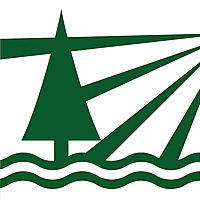Charles C. Jones Seminar
Manufacturing, Actuation, Sensing, and Control for Robotic Insects. With Dr. Robert Wood, Harvard. Please see description for more information.
Speaker: Dr. Robert Wood
Charles River Professor of Engineering and Applied Sciences in Harvard’s School of Engineering and Applied Sciences and a founding core faculty member of the Wyss Institute for Biologically Inspired Engineering
Abstract: As the characteristic size of a flying robot decreases, the challenges for successful flight revert to basic questions of fabrication, actuation, fluid mechanics, stabilization, and power - whereas such questions have in general been answered for larger aircraft. When developing a robot on the scale of a housefly, all hardware must be developed from scratch as there is nothing "off-the-shelf" which can be used for mechanisms, sensors, or computation that would satisfy the extreme mass and power limitations. With these challenges in mind, this talk will present progress in the essential technologies for insect-scale robots and the first flight experiments with robotic insects.
Bio: Robert Wood is the Charles River Professor of Engineering and Applied Sciences in Harvard’s School of Engineering and Applied Sciences and a founding core faculty member of the Wyss Institute for Biologically Inspired Engineering. Prof. Wood completed his M.S. and Ph.D. degrees in the Dept. of Electrical Engineering and Computer Sciences at the University of California, Berkeley. He is founder of the Harvard Microrobotics Lab which leverages expertise in microfabrication for the development of biologically-inspired robots with feature sizes on the micrometer to centimeter scale. His current research interests include new micro- and meso-scale manufacturing techniques, fluid mechanics of low Reynolds number flapping wings, control of sensor-limited and computation- limited systems, active soft materials, wearable robots, and morphable soft-bodied robots. He is the winner of multiple awards for his work including the DARPA Young Faculty Award, NSF Career Award, ONR Young Investigator Award, Air Force Young Investigator Award, Technology Review’s TR35, and multiple best paper awards. In 2010 Wood received the Presidential Early Career Award for Scientists and Engineers from President Obama for his work in microrobotics. In 2012 he was selected for the Alan T. Waterman award, the National Science Foundation’s most prestigious early career award. Wood has served as PI or co-PI on over twenty sponsored research projects over the past four years including the $10M NSF-sponsored Expeditions in Computing “RoboBees” project that he is leading. Wood’s group is also dedicated to STEM education by using novel robots to motivate young students to pursue careers in science and engineering.
